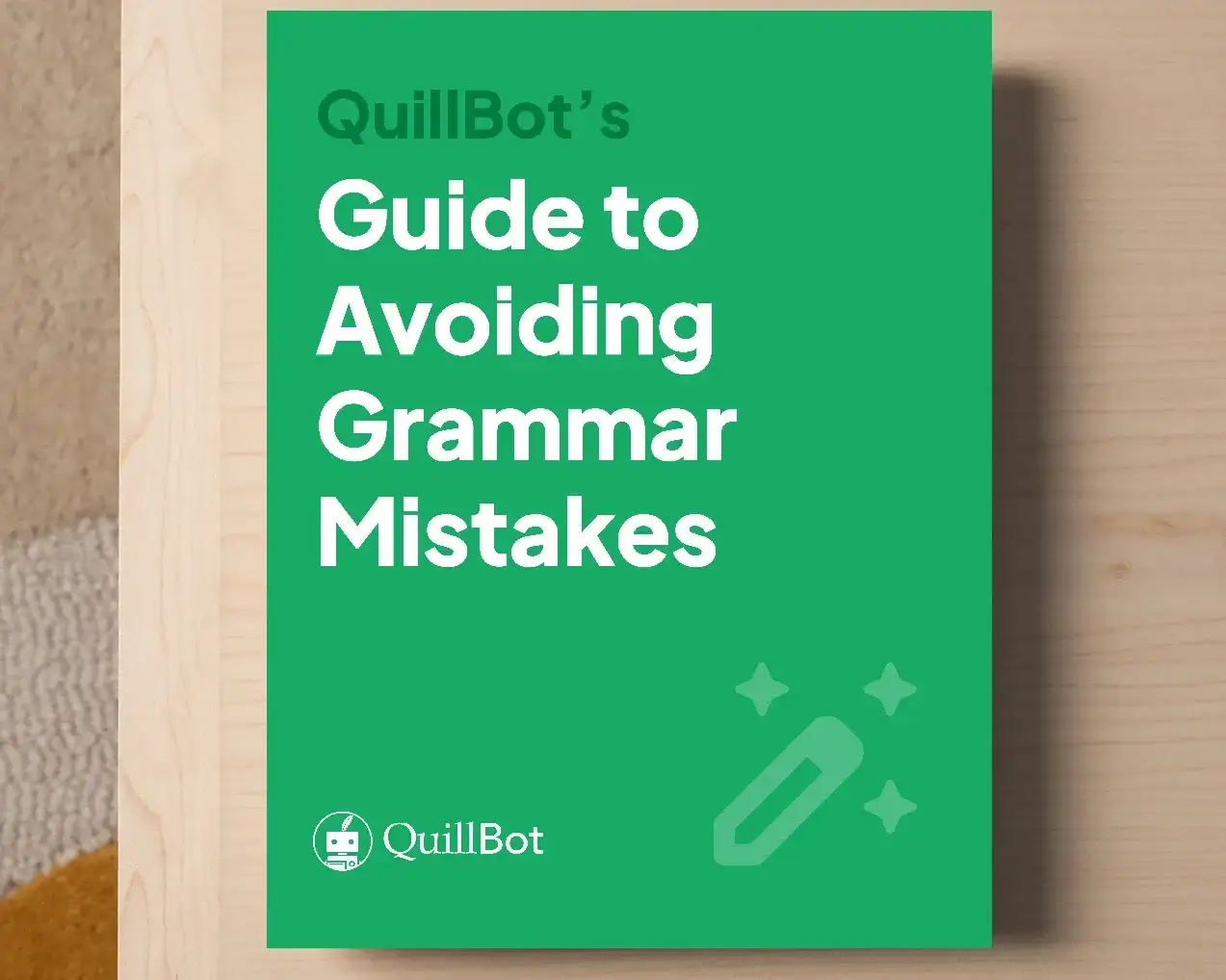In law, per se means “by itself” or “inherently.”
It is used to refer to something that is inherently illegal or problematic, regardless of the circumstances or context.
People sometimes write “per se” as “per say,” but this is incorrect. A QuillBot Grammar Check can make sure you spell this correctly.
Read this FAQ: What’s the meaning of per se in law?
No, “definately” is not a word. It is a misspelling of the adverb definitely, which means “without doubt” or “in a definite way.”
A QuillBot Grammar Check can help you avoid spelling errors like this.
Read this FAQ: Is definately a word?
The correct spelling is definitely. Other spellings like definately or definitly are wrong.
A QuillBot Grammar Check can help you avoid this spelling mistake.
Read this FAQ: How do you spell definitely?
A follow-up email is an email in which the sender is reaching out to someone who has already been contacted to inquire about or request further information about something.
For example, it’s common to write a follow-up email a few days after submitting an application to ask about its current status.
Need help drafting the perfect follow-up email? Try QuillBot’s follow up email writer and create professional, effective emails in minutes!
Read this FAQ: What is a follow up email?
Quote on quote is an eggcorn, a misunderstood pronunciation of quote-unquote, which is an idiom that indicates you’re quoting someone while you’re speaking aloud. For example, someone might say, “In his speech, President Biden said, quote-unquote, ‘America is an idea.’ ” While this phrase is common, it’s not necessary.
Read this FAQ: Is it quote on quote or quote-unquote?
Irregardless and regardless are sometimes used interchangeably. However, most dictionaries consider irregardless a nonstandard word, so it should be avoided in professional communication or academic writing. Some language authorities accept the use in informal language.
Both words mean “despite everything.”
Use QuillBot’s free Grammar Checker to fix your mistakes for free.
Read this FAQ: Is it regardless or irregardless?
Irregardless is sometimes used instead of regardless to mean “despite everything.”
Most dictionaries don’t consider irregardless a standard word, so it should be avoided in academic writing or professional communication. However, some language authorities accept the use in informal language.
Use QuillBot’s free Grammar Checker to fix your mistakes for free.
Read this FAQ: Is irregardless a real word?
Ours and our’s are often confused. In the case of “belonging to,” both “ours” and “our’s” are actually incorrect. The correct version is belonging to us.
- Ours is used as a first-person plural possessive pronoun (e.g., “the dog is ours”).
- Our’s is a common misspelling of this word and should be avoided.
This is also true for other possessive pronouns, such as hers and theirs.
Use QuillBot’s free Grammar Checker to avoid mistakes like these!
Read this FAQ: Is it belonging to ours or our’s?
The correct version is not ours (without an apostrophe).
Ours and our’s are often confused, but “our’s” is never correct. Ours is a possessive pronoun and doesn’t take an apostrophe. This is also true for other possessive pronouns, such as hers and theirs.
Use QuillBot’s free Grammar Checker to avoid mistakes like these!
Read this FAQ: Is it not ours or not our’s?
There are various synonyms for each meaning of truly. For truly meaning “properly,” synonyms include:
- Correctly
- Precisely
- Exactly
- Accurately
For truly meaning “absolutely,” some synonyms are:
For truly meaning “in a truthful way,” synonyms include:
- Honestly
- Sincerely
- Truthfully
- Candidly
You can also explore further synonyms using the QuillBot Paraphraser.
Read this FAQ: What is a synonym for truly?
